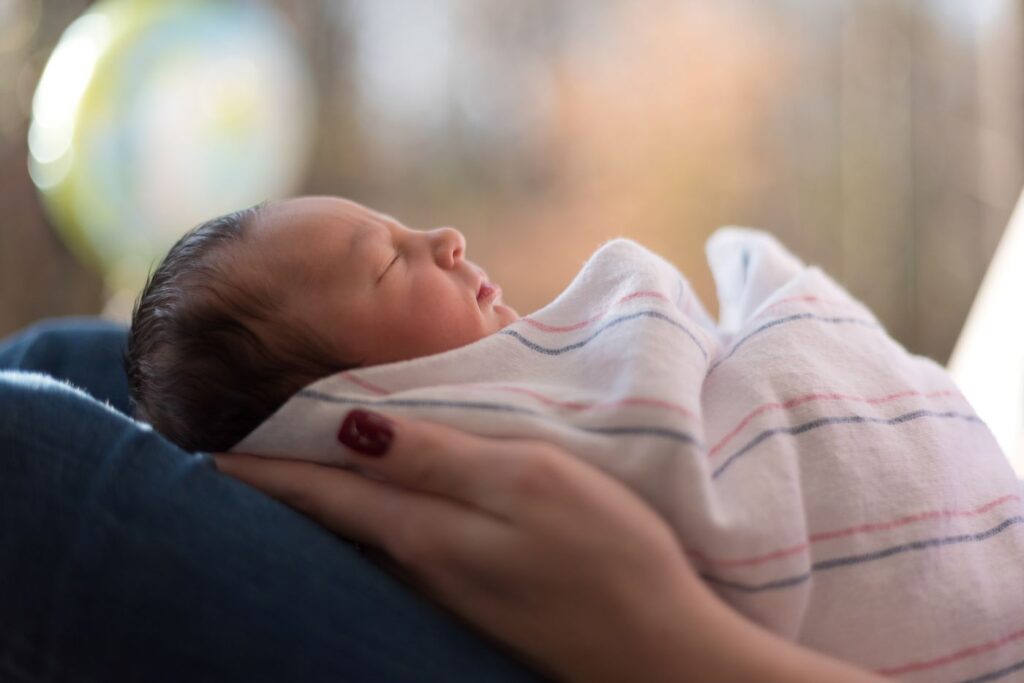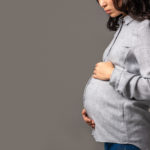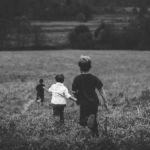This essay was adapted from an edition of the popular Substack letter Civic Renaissance.
Our current divisions stem in many ways from our failure to appreciate the gift of our humanness, both in ourselves and in others. Our insufficient appreciation of personhood manifests in ways large and small.
The large ways are obvious. Growing political violence, extremism, high-stakes rhetoric, and the emboldening of hate groups and hateful rhetoric.
But I’ve noticed it in small ways, too.
Start your day with Public Discourse
Sign up and get our daily essays sent straight to your inbox.Take, for example, a news item from a few weeks ago. Sofia Richie Grainge—daughter of musician Lionel Richie, and Gen Z’s “It girl” in her own right—announced that she was pregnant . . . and due in three months. Her waiting until she was two-thirds through her pregnancy reflects a growing cultural norm among celebrities and non-celebrities alike to delay a pregnancy or birth announcement. In an extreme case, Paris Hilton didn’t announce her child’s birth (through surrogacy) until after he was born.
Of course, there are many reasons one might want to delay sharing publicly about one’s pregnancy. Whether to avoid public scrutiny, gossip, speculation, or simply to celebrate privately for as long as possible, pregnancy is deeply personal, and all are valid reasons to keep the news to oneself. An announcement of pregnancy delayed to the second trimester also helps one to ensure a pregnancy’s viability before sharing the news widely: after twelve weeks, the chances of miscarriage drop dramatically.
My first pregnancy ended in miscarriage, so I understand the fear that many women share of making a public announcement only to have to follow it with a public recantation—adding insult to injury in an already devastating loss.
“The Miracle That Saves the World”
For my current pregnancy—twelve weeks along—I have chosen to tell people early and often. I chose to break the cultural norm of delaying discussing pregnancy before twelve weeks and did so as a defiant, definitively pro-human act, a small rebellion against these deeply dehumanizing times we find ourselves in.
War, a divisive election, a media and political ecosystem that wants us to essentialize others based on one aspect of who they are: these are but a few symptoms of a society that insufficiently appreciates the gift of being human and the value of human life.
Hannah Arendt, the Jewish German philosopher and refugee from Hitler’s Third Reich, chose never to have children herself, but she still had strong thoughts about why birth mattered to everyone, and how it supported a free and flourishing society. She was passionate about birth, which she beautifully called “the miracle that saves the world.”
She unpacks her philosophy of “natality”—a word derived from the Latin “natus,” meaning “born,” which is also the root for our words natal, nature, native, nation and nativity—in her book called The Human Condition. Birth, she claimed, wasn’t just something for pregnant women or couples to care about. It was something that everyone—at all levels of society, and of all sexes, all ages, childless or not—had an interest in. Even though she was childless, she knew that natality matters to everyone because we were all once born, and had an interest in seeing our species perpetuated. Our views on birth were a proxy for our views on life itself—and any living person should not be indifferent to life, or birth, she thought.
She also believed that as we’ve been born once, we have the power of being born again, beginning something anew in ourselves and in the lives we live. We also all have an interest in the propagation of our species, which birth alone enables.
Arendt argued that a society that diminished and marginalized the value of birth—as I think radically delaying pregnancy announcements can—fundamentally lacked an appreciation of human life. A society that insufficiently appreciates human life, she thought, was a sign of a society in decline. Indifference to life, or fatalism, was both a breeding ground for, and result of, totalitarian rule.
Celebrating birth, by contrast, is an antidote to the fatalism, the indifference to life or death, that pervades a society—in Arendt’s day and now. This is because celebrating birth’s critical role in human life affirms democracy and human freedom.
Arendt wrote that totalitarian leaders and strongmen “do not care whether they themselves are alive or dead, if they ever lived or never were born,” and are primed to take power when their subjects stop caring about life or death, too.
We owe it to our species, past, present, and future, to celebrate birth—to reinvigorate our celebration in what Arendt dubbed “the miracle of being”—in ways great and small.
I see my early sharing of my pregnancy as a declarative rebellion against the fatalism and dehumanization of our day.
Because loss defined my first experience of pregnancy, I have a constant subliminal fear of loss once again rearing its ugly head in our lives. Seven years ago, we grieved our child whom we lost at nine weeks. A few family members and friends knew of our pregnancy and loss, but we were largely alone.
I see my early sharing of my pregnancy as a declarative rebellion against the fatalism and dehumanization of our day.
Duality in the Human Condition
That early experience with miscarriage gave me a profound sense of the precariousness and fragility of life. And yet, having borne two beautiful healthy children after my loss, I now better appreciate the resilience and tenacity of life, too.
Today, we often think of things and people through a lens of cheapened simplicity: good or bad; right or wrong. But much of human life is both/and.
My experience with miscarriage taught me life is fragile. My experience bearing two children showed me life is resilient. As human beings, we are both/and.
Fragile.
Resilient.
One of the many dualities of the human condition.
It reminds me of Blaise Pascal’s insight from his Pensées:
Man is only a reed, the weakest in nature, but he is a thinking reed. There is no need for the whole universe to take up arms to crush him: a vapor, a drop of water is enough to kill him. But even if the universe were to crush him, man would still be nobler than his slayer, because he knows that he is dying and the advantage the universe has over him. The universe knows none of this.
In birth, we must be prepared for the dual possibilities of “irreparable loss and rapturous gain,” as Yale University Press editor Jennifer Banks writes in her wonderful work, Natality: Toward a Philosophy of Birth, which is informed heavily by Arendt’s thought.
This duality of gain and loss, joy and suffering, is ever present in human life.
Birth is no exception.
Being a mother, a parent, a human being in this world demands that we be prepared for both possibilities, and that to enjoy the peaks we must endure the valleys. Callousing our hearts to shelter us from pain is a recipe for numbness, indifference to life and suffering, and can breed the fatalism that Arendt feared.
I chose to tell people as early as three weeks of my pregnancy, knowing full well it would be painful to share with them once again should he or she be lost.
Inviting people into my joy, both then and now, means also inviting others into my possible pain. We must embrace the joys with the sorrows to lead full, rich lives as human beings.
Image by Gary and licensed via Adobe Stock.













